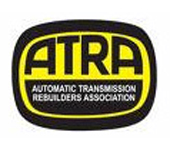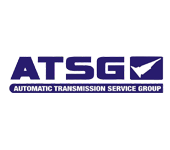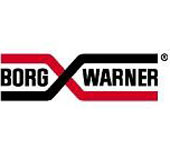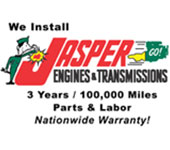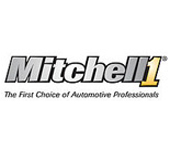817-446-7295 or 682-321-7117 | 2921 S Cooper St #101 Arlington, TX 76015
AUTONET TV
Archive for January 2021Not So Hot in FORT WORTHPosted January 31, 2021 7:10 AMWhen the weather turns cold, it's nice to crank up the furnace and enjoy the heat. But if your home's furnace doesn't work, it's not too comfortable. Same goes with your vehicle. When the heater's not working, things can get miserable. It could also signal some major problems, which we'll discuss later. A vehicle's heating system is fairly complicated. It's made up of several parts, including a blower motor/fan, a heater core and some mechanical and electrical components. In basic terms, a vehicle's engine warms up coolant which is then sent to the heater core (which is kind of like a small radiator) behind the dash. That blower motor sends cold air through the heater core which heats up the air. Voila! Heat. Diagnosing problems in this system takes a trained mechanic because of the different possible issues. Your heater core may need replacing; they are sometimes in tight spots and may be difficult to work on. Another possible problem could be a defective thermostat, which regulates how the coolant flows through the engine. You may have a leak somewhere in your cooling system. Those leaks may be something as simple as a detached hose clamp or as serious as a bad head gasket. A knowledgeable technician at Westmoreland Transmissions will be able to track the problems down. For those reasons, it's wise to get your vehicle's heating system repaired. Not only can driving an unheated vehicle on a cold day freeze your fingers, some related engine problems that are not repaired could leave you stranded. Smart drivers keep up the maintenance on their vehicle's cooling system; it's a hot tip to prevent a cold vehicle. Westmoreland Transmissions Beware of Potholes! (Avoiding Pothole Damage)Posted January 17, 2021 8:00 AMYou may live in a region where roads become pockmarked with craters known better as potholes. They're caused by moisture seeping through a compromised road surface that can freeze, expand and literally punch holes in the road. And when your vehicle hits one of those holes that's big enough, the impact can flatten a tire, bend a wheel or tear apart a suspension component. To minimize pothole damage, leave enough room between you and the vehicle in front of you so you can see the road surface and any upcoming potholes. That way you'll have time to slow down and steer around them. Also, if you see what looks like a puddle of water, it may be hiding a pothole underneath, so treat it as if was a pothole. If you keep your tires inflated to the manufacturer's specifications, they're more likely to withstand hard impacts. And the slower you're going when you hit a pothole, the less likely you are to break something. But if you do find you've hit a pothole pretty hard, here are some signs to watch out that could signal damage.
These are all symptoms you should have checked at your vehicle repair facility as soon as you can. The longer you wait, the more damage you may be doing. You also may find after hitting a pothole hard that the tire on that wheel is flat. Try not to drive any more on that tire since you could do a lot more damage to the tire and/or wheel. A call to roadside assistance may save you money in the long run by limiting the damage to what's already done. Westmoreland Transmissions Lean Times (Shocks and Springs)Posted January 10, 2021 10:00 AMYou may have noticed your vehicle going through lean times. By that, we mean it's literally leaning to one side. When you notice that, you should get it checked out at your service facility soon because you could have a serious problem. Many things can cause a vehicle to lean. You may have problems with your struts, shocks or springs. They all work in tandem to make your ride more comfortable. The struts bear the weight of the vehicle's body, the shock absorbers employ a piston that keeps your tires in contact with the road and controls movement of the vehicle's body. Springs also absorb impacts from uneven road surfaces. If these components get stuck, either too high or too low, they cause your vehicle to lean. That's because that side of the vehicle isn't at the height it is designed to be. A technician will determine where the problem is. Outside elements such as moisture plus hard knocks to these components can weaken them, eventually resulting in a failure. The metal can get so fatigued that it breaks. Often when one side of a vehicle is too high or too low, your service advisor will advise you to have the other side done as well. That's because if only one side has new parts installed, it won't be level with the side that has old parts. There are a couple of other reasons vehicles can lean. One is that the suspension can be bent or the chassis twisted, again due to wear and tear by driving on rough roads, over badly maintained railroad tracks or in deep potholes. Another reason your vehicle may lean is that the tires and/or wheels aren't all the same size. Or one side might have drastically over or underinflated tires. This can be a dangerous condition since the imbalance can affect steering and handling. Considering what drivers put suspension parts, tires and wheels through, it's not surprising that they can be punished so much that they don't hold up like we want them to. A level-headed driver will make sure to be driving a level vehicle by making sure these components are maintained in good condition. Westmoreland Transmissions Move it or Lose It (Dormant Vehicles)Posted January 3, 2021 8:48 AMWhen it comes to your vehicle, driving it too much can cause some issues. But what about not driving a vehicle enough? That has consequences as well. Here are a few things that can happen if a vehicle isn't driven enough. When the engine doesn't operate, the oil isn't lubricating. That means some mechanisms that need periodic lubrication aren't getting it. And oil that sits around breaks down over time. In fact, some experts say you should change oil more often if your vehicle sits in the driveway than if you drive it regularly. You've heard that expression, "Take it on the highway and blow out the engine.” Well, carbon buildup used to be a problem in older vehicles. But the real culprit these days is moisture that builds up from combustion if your vehicle never gets hot enough to burn it off. That water vapor can mix with oil and cause sludge to form. There are many vehicle systems (battery, exhaust system, engine seals, etc.) that benefit from driving your vehicle at its optimal operating temperature for a while. Spark plugs can deteriorate unless they are fired up. The gas tank can rust from the inside if the metal is exposed from not having fuel in it. Rodents and insects may see a sitting vehicle as a luxury hotel. Brakes can rust after sitting around without being used. Seals and gaskets can dry out. One wise thing to do is check the operating manual. Some will spell out a maintenance schedule for vehicles that aren't driven regularly. One suggestion? Discuss your vehicle's maintenance with your service advisor. Let him or her know how often you drive the vehicle and what you use it for. Then, you can come up with a maintenance schedule tailored for you, one that might not be covered in the owner's manual. If you do have a vehicle that's been sitting around for a long time, it may be wise to have it towed to your service facility rather than trying to drive it with brakes that may not work, spark plugs that may not fire reliably and other systems that may compromise your safety and those of others on the road. You may think it's great to have a low-mileage vehicle that you've barely driven, but a complicated, sophisticated machine such as a car, SUV or truck needs regular attention to keep it running safely… and reliably. Westmoreland Transmissions | ||
SearchArchiveApril 2018 (16)May 2018 (5) June 2018 (4) July 2018 (5) August 2018 (4) September 2018 (5) October 2018 (4) November 2018 (4) December 2018 (5) January 2019 (5) February 2019 (4) March 2019 (5) April 2019 (4) May 2019 (4) June 2019 (5) July 2019 (4) August 2019 (4) September 2019 (5) October 2019 (4) November 2019 (4) December 2019 (5) January 2020 (5) February 2020 (4) March 2020 (5) April 2020 (4) May 2020 (5) June 2020 (4) July 2020 (4) August 2020 (5) September 2020 (4) October 2020 (4) November 2020 (5) December 2020 (4) January 2021 (6) February 2021 (4) March 2021 (4) April 2021 (4) May 2021 (5) June 2021 (4) July 2021 (4) August 2021 (5) September 2021 (4) October 2021 (5) November 2021 (4) December 2021 (4) January 2022 (6) February 2022 (4) March 2022 (4) April 2022 (4) May 2022 (5) June 2022 (4) July 2022 (5) August 2022 (4) September 2022 (4) October 2022 (5) November 2022 (4) December 2022 (4) January 2023 (5) February 2023 (4) March 2023 (4) April 2023 (5) May 2023 (4) June 2023 (4) July 2023 (5) August 2023 (4) September 2023 (4) October 2023 (5) November 2023 (4) December 2023 (4) January 2024 (5) February 2024 (4) March 2024 (5) April 2024 (4) May 2024 (4) June 2024 (5) July 2024 (4) August 2024 (4) September 2024 (5) October 2024 (4) November 2024 (4) December 2024 (5) January 2025 (4) February 2025 (4) March 2025 (5) April 2025 (4) May 2025 (4) June 2025 (5) | CategoriesWhat Customers Should Know (46)Battery Replacement (1)Steering (7)Maintenance (8)Fuel Economy (4)Keys to a long lasting vehicle (2)Check Engine Light (2)Air Conditioning (9)Battery (10)Tires and Wheels (3)Auto Safety (4)Transmission (3)Alternator (2)Fuel Saving Tip: Slow Down (2)Shocks & Struts (3)Fluids (2)Automotive News (1)Winter Prep (2)Brakes (12)Older Vehicles (1)Cooling System (4)Service Intervals (1)Drive Train (2)Oil Change (5)Service Standards (1)Windshield Wipers (2)Headlamps (2)Winter Tires (1)Exhaust (5)Customer Detective Work (1)Fuel System (1)Tires (7)Alignment (4)Tire Rotation and Balancing (2)Transfer Case Service (1)Suspension (1)PCV Valve (1)Safety (2)TPMS (1)Inspection (2)Timing Belt (2)Shocks and Struts (2)Brake Service (2)Spark Plugs (1) | |
coupons
HOLIDAY SPECIAL
4L60E With Torque Converter
view coupon
Carry Out - Normal Price $1,600
Carry Out ? Holiday Price $1,400
Testimonials
Eric Nicks, 05/21/2025
Bob was a very nice man and definitely knowledgeable about rebuilding transmissions. He rebuilt my f250 7.3 with 275K miles on it . Brought it in a two days later truck was done running again like new. He told me to drive it like you stole it and come back in another 300k miles. It’s been over two years and 100k miles and transmission runs like new. Definitely recommend..The guy working in the shop was a very nice guy also. Keep up the great customer service! 😃







